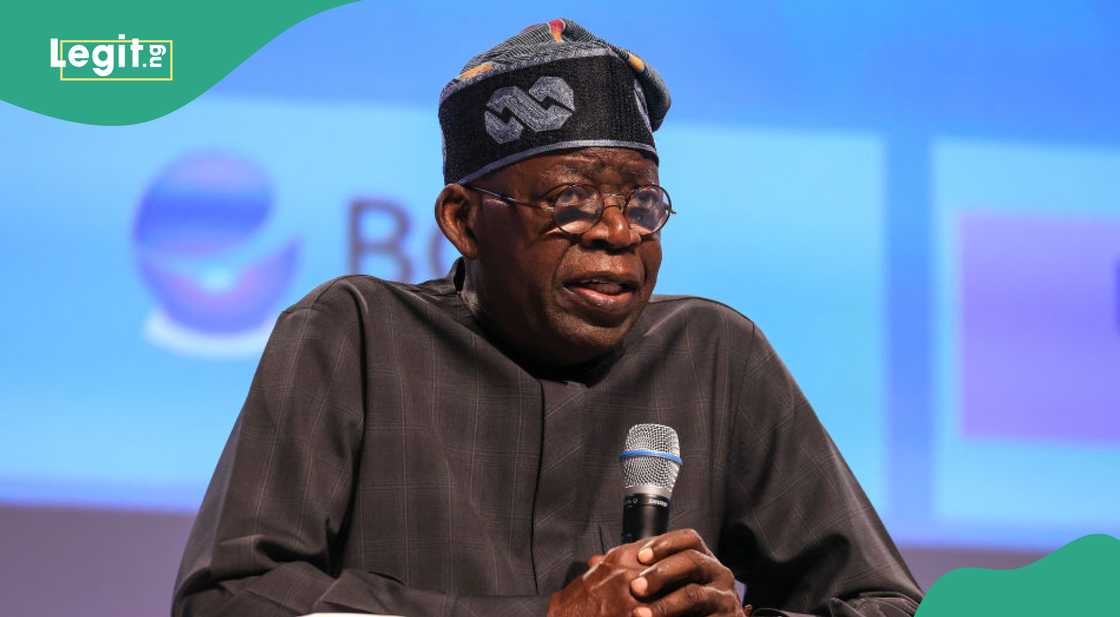Nigeria Emerges Highest Beneficiary of Afreximbank Financing in Africa with $25 Billion
- The African Export-Import Bank (Afreximbank) has disclosed that Nigeria is its largest financing beneficiary
- The Afreximbank’s President and Board of Directors Chairman, Benedict Oramah said the bank had disbursed about $25 billion to Nigeria
- He said the country benefitted from several of the bank’s pilot projects, placing it as the continent’s largest beneficiary
Legit.ng’s Pascal Oparada has reported on tech, energy, stocks, investment and the economy for over a decade.
Nigeria has emerged as the highest beneficiary of the African Export-Import Bank.
The country received a cumulative disbursement of about $52 billion from the bank, making it the continent’s largest beneficiary of Afreximbank’s trade and development financing.

Source: Getty Images
Nigeria attracts $52bn in financing from Afreximbank
Afreximbank President and Chairman of the Board of Directors, Benedict Oramah, stated this on Tuesday, February 11, 2025, at the bank’s Annual Meetings 2025 Signing Ceremony in Abuja.
According to Oramah, Nigeria has attracted a cumulative disbursement of $52 billion and is the first beneficiary of several pilot projects.
He expressed gratitude to the Nigerian government for its support and for responding promptly and positively to capital calls and removing hurdles affecting the bank’s operations.
The Afreximbank boss highlighted Nigeria’s contributions that had allowed its voice in its affairs, enabling it to play an essential role in shaping the bank’s future.
Oramah said in the last decade, Afreximbank had disbursed not less than $140 billion across the continent.
Afreximbank lists intervention projects in Nigeria
The interventions helped bridge financing shortfalls left by Africa’s international lenders, further boosting economic transformation and reducing Africa’s reliance on commodity exports.
He revealed that the bank had been hugely instrumental in industrialising Africa, turning several economies into significant industrial hubs.
Punch reports that Oramah pointed out that the bank’s interventions had enabled the African Continental Free Trade Agreement (AfCTA) by supporting the Secretariat and underwriting several initiatives to boost intra-African trade.
He highlighted the key initiatives of the bank in Nigeria including the African Quality Assurance Centre to ensure Nigerian goods meet global trade standards.
He disclosed that the first centre was already operating in Kaduna, with other facilities planned across Africa.
Oramah also said the bank had played a critical role in supporting Niegria’s energy and industrial transformation.
He revealed that Afreximbank had invested massively in boosting Nigeria’s refining capacity by supporting the Dangote and Port Harcourt refineries.
He added that the bank had also supported Nigeria’s fertiliser production, enabling the country to emerge as the continent’s leading producer, with an annual output of 7.5 million metric tonnes.
Afreximbank predicts impact of naira’s depreciation
Legit.ng earlier reported that Afreximbank had said the consistent currency risks and economic uncertainties in Africa’s largest economy may lead to a cautious investment approach by investors.
The Nigerian currency, the naira, hit a six-month low of N1,656.49 per dollar in the official FX market on September 17, 2024, following end users' strong demand for the US dollar.

Read also
Fidelity Bank gets approval to proceed with second phase of its capital-raising initiatives
The Central Bank of Nigeria (CBN) 's efforts to strengthen the naira have yet to produce long-term results. Nigeria’s economy weakens due to a liquidity squeeze and a lack of export diversification.
Proofread by Kola Muhammed, journalist and copyeditor at Legit.ng
PAY ATTENTION: Сheck out news that is picked exactly for YOU ➡️ find the “Recommended for you” block on the home page and enjoy!
Source: Legit.ng




